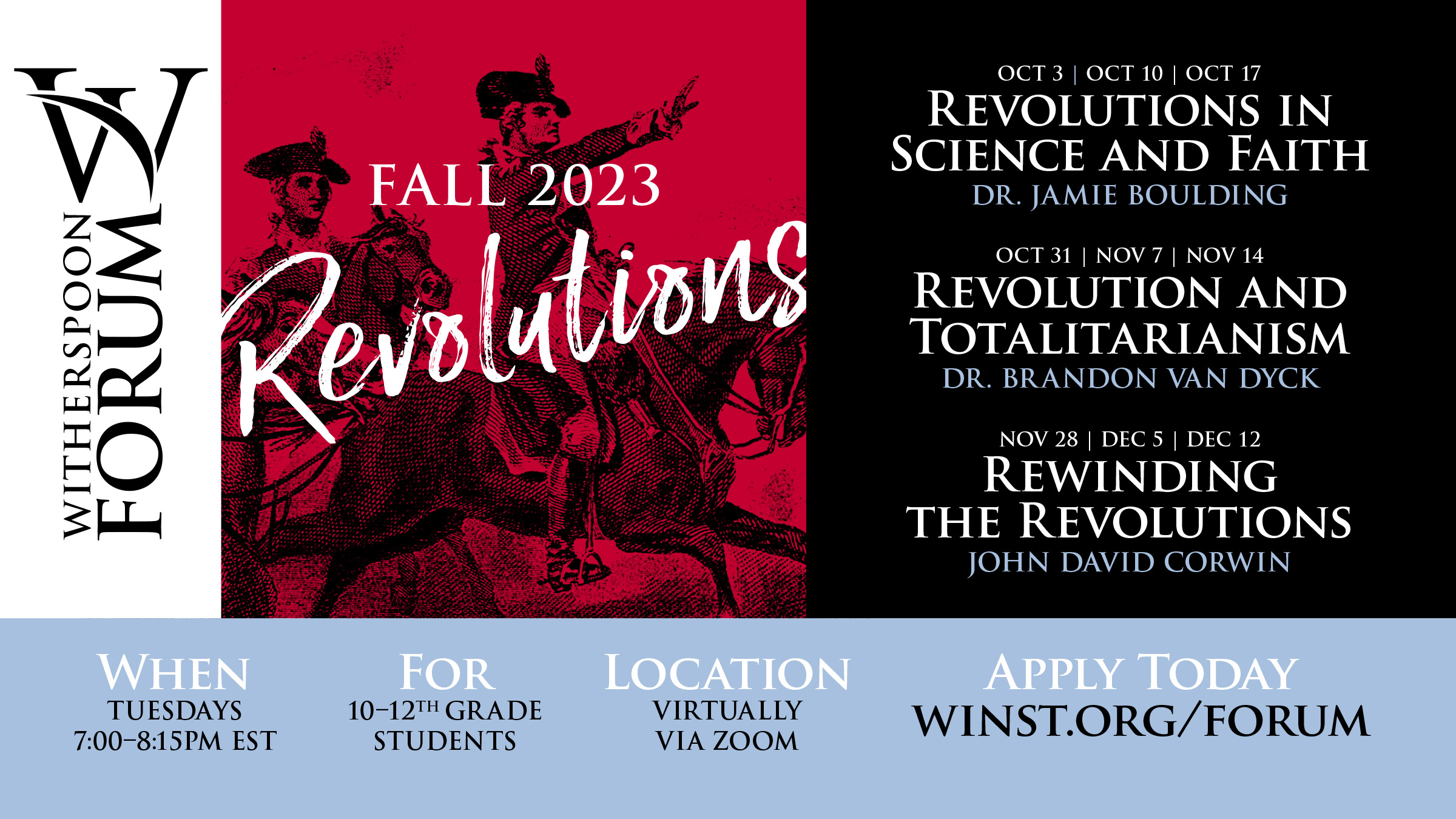The Witherspoon Institute is excited to launch a new online seminar forum for high school students in tenth, eleventh, and twelfth grades.
The Witherspoon Forum provides a space for high school students who are serious about their studies to discuss foundational questions of human existence and contemporary cultural issues in dialogue with their peers and Witherspoon’s seminar leaders.
The Forum features six three-part virtual seminars that explore a common theme through interdisciplinary approaches, including political theory, philosophy, history, literature, and the arts. No subject matter expertise is expected, and no grades are assigned. Instead, the Forum seeks to foster rigorous conversation, meaningful reflection on fundamental questions, and intellectual friendship.
Open to students in grades ten, eleven, and twelve, applicants are invited to specify which seminars they plan to attend. If accepted, students commit to attending these seminars. Those who attend four or more seminars throughout the year will be recognized as Witherspoon Scholars. They will also receive priority consideration for the Witherspoon Institute’s week-long, in-person summer seminar, Moral Life and Classical Tradition.



